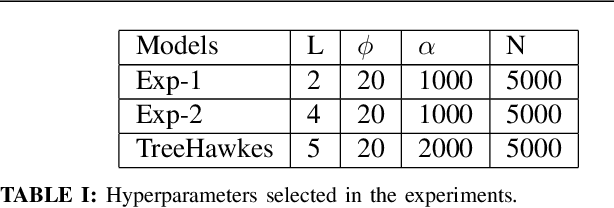Prediction with Spatio-temporal Point Processes with Self Organizing Decision Trees
Paper and Code
Mar 07, 2020



We study the spatio-temporal prediction problem, which has attracted attention of many researchers due to its critical real-life applications. In particular, we introduce a novel approach to this problem. Our approach is based on the Hawkes process, which is a non-stationary and self-exciting point process. We extend the formulations of a standard point process model that can represent time-series data to represent a spatio-temporal data. We model the data as nonstationary in time and space. Furthermore, we partition the spatial region we are working on into subregions via an adaptive decision tree and model the source statistics in each subregion with individual but mutually interacting point processes. We also provide a gradient based joint optimization algorithm for the point process and decision tree parameters. Thus, we introduce a model that can jointly infer the source statistics and an adaptive partitioning of the spatial region. Finally, we provide experimental results on a real-life data, which provides significant improvement due to space adaptation and joint optimization compared to standard well-known methods in the literature.
 Add to Chrome
Add to Chrome Add to Firefox
Add to Firefox Add to Edge
Add to Edge